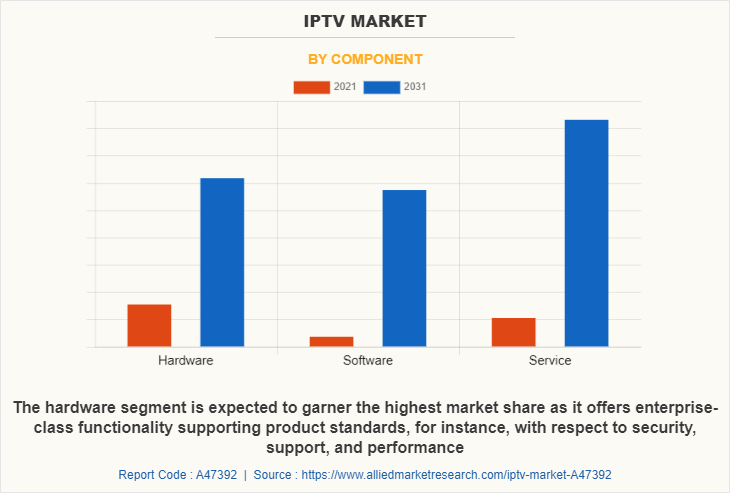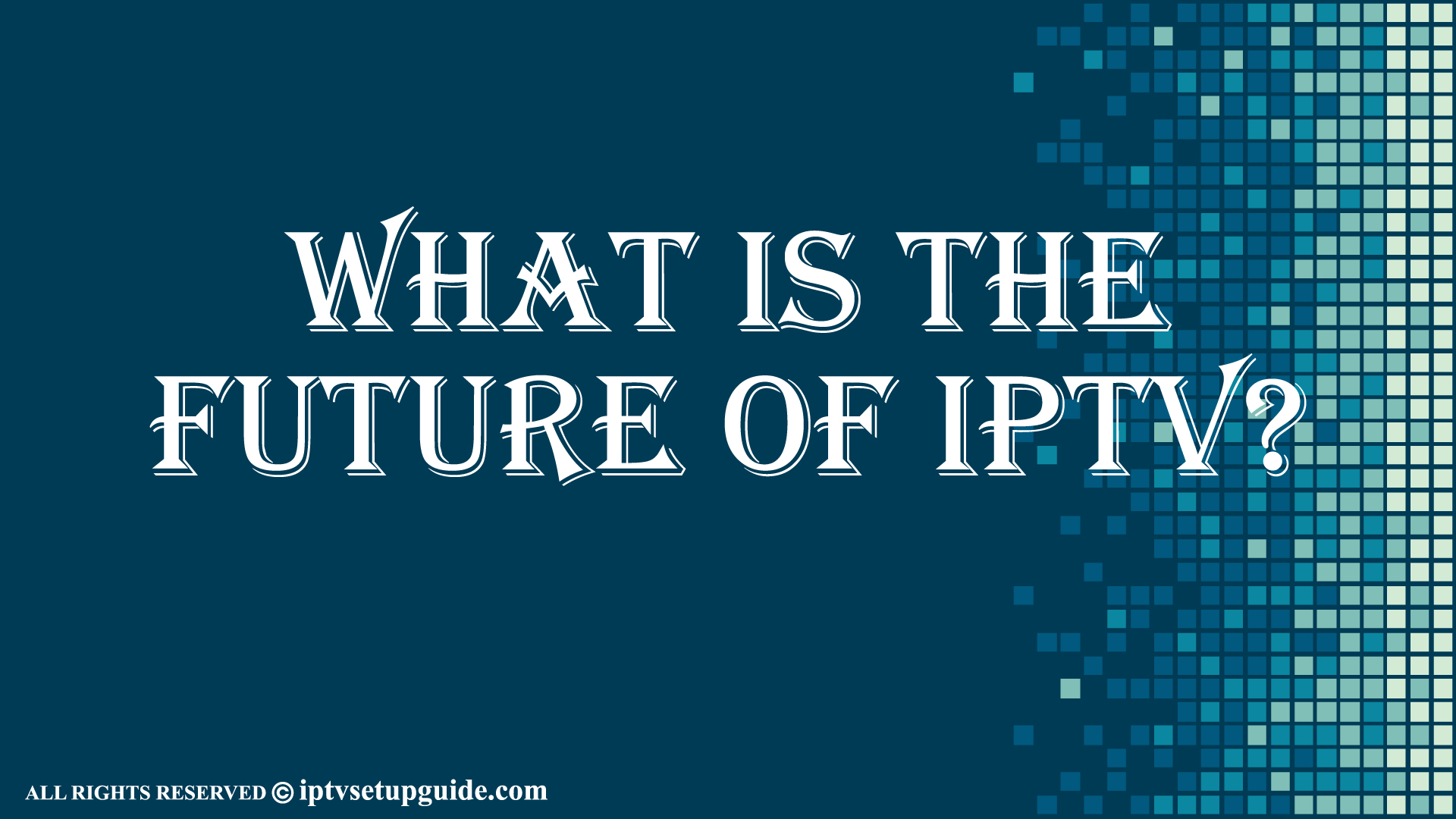Now, there’s confusion within the market about the terminology that I would like to start by clearing up. Streaming video over the web isn’t IPTV within the classic sense. That is what I might call internet TV or OTT (over-the-top) video.
IPTV is the process of delivering video over a closed or controlled network. So, when an ISP offers TV services that’s IPTV.

Market Trends: The IPTV Market had a value of USD 72.24 billion in 2020 and is projected to reach $146.2 billion by 2031, growing at a CAGR of 9.5% from 2022 to 2031.

IPTV MARKET TRADEA According to Grand View Research, IPTV is set to grow to a market size of $67.6 billion by 2027 with a compound annual growth rate of 7.1%. MordorIntelligence has an even more optimistic view, putting the market at $104.25 billion by 2025, with a CAGR of 16.9%.
Segment review:
The IPTV market can be segmented into several segments based on various factors. These segments include product types (hardware, software, and services), application types (nonlinear television and linear television), device types (smartphones and tablets, smart TVs, and desktops and laptops), transmission types (wireless and wired);, industry f, . Information Technology and Telecommunications, Healthcare, etc.), and regions (North America, Europe, Asia Pacific, and LAMEA).

Digital Capabilities:
IPTV, or Internet Protocol Television, is a digital TV delivery device that utilizes the internet to offer live and on-call TV packages and videos to subscribers. It can be deployed with the usage of two essential architectures: centralized and dispensed. The centralized architecture shops all media content on centralized servers, making it suitable for networks with fewer VOD offerings and enough center and aspect bandwidth. On the other hand, the disbursed structure calls for sensible content distribution structures to effectively deliver multimedia substances through the service provider’s community.
Key Benefits:
IPTV offers several key blessings, together with the transmission of numerous TV channels and services consisting of video calls for, time-shifted TV, live TV, and extra. It can function over the public internet, non-public local area networks, or wide vicinity networks, ensuring a secure and reliable streaming revel.
Content is securely delivered across the community through the usage of the IP protocol, on hand on numerous devices like smart TVs, set-pinnacle containers, and mobile gadgets. The IPTV marketplace is witnessing widespread strategic tactics, which include growth, collaboration, mergers and acquisitions, and integration of superior technologies. Industry leaders are making an investment in research and development activities while pursuing expansion plans.
Government Regulations:
Organizations in the information technology sector need to show due diligence in complying with government regulations. Organizations are embracing IPTV to leverage and extract valuable information from stored data, but it comes with logistical and regulatory challenges. Governments around the world have implemented laws to protect data privacy and prevent copyright infringement.
In the UK, for example, the Digital Economy Act was introduced to impose harsher penalties for copyright infringement. Similarly, the California government introduced the Consumer Privacy Act in 2020, and other governments have established data collection requirements on digital platforms This law has forced marketers to personalize their channels by themselves data learns.
Additionally, both the federal and state governments are stepping up provisions for privacy laws that apply to data processing in their business operations. For example, the California Online Privacy Protection Act gives users explicit privacy rights and requires companies to disclose how they will use personal information in the future Additionally, cloud security regulations are important for AI service providers operating globally. In the United States, for example, many players operating in a given country are required to comply with safety regulations. These rules ensure that data is protected and protected in a cloud environment.
What Can We Expect in the Coming Years?
Increased adoption
More personalized content
Improved user experience
Integration with other technologies
- More original content
IPTV has a good future in my opinion. Internet TV or OTT is sort of a big city, you’ll find what you’re trying to find but sometimes you’ve got to seem far and wide to find what you would like. Sometimes you get mixed results and sometimes you grind to a halt in traffic. The idea of getting separate apps for everything sounds great to the content providers but it sucks from a customer perspective.
Additionally:
How do I know where a specific series is or am I getting the simplest value with having three different subscriptions?
With IPTV you normally have one subscription and the content is delivered over a managed network to give you the best experience. Where the provider cannot have the direct provision of a service (like Netflix) they can at least offer single billing (Netflix partners with ISPs to allow them to bill for Netflix subscriptions) and better content delivery of that content (Netflix CDN appliances in the ISP’s network).
OTT is great for niche content and illegally shared content. Also, it has a place for smaller ISPs who don’t want to offer TV services but IPTV should offer a better experience if done right.
